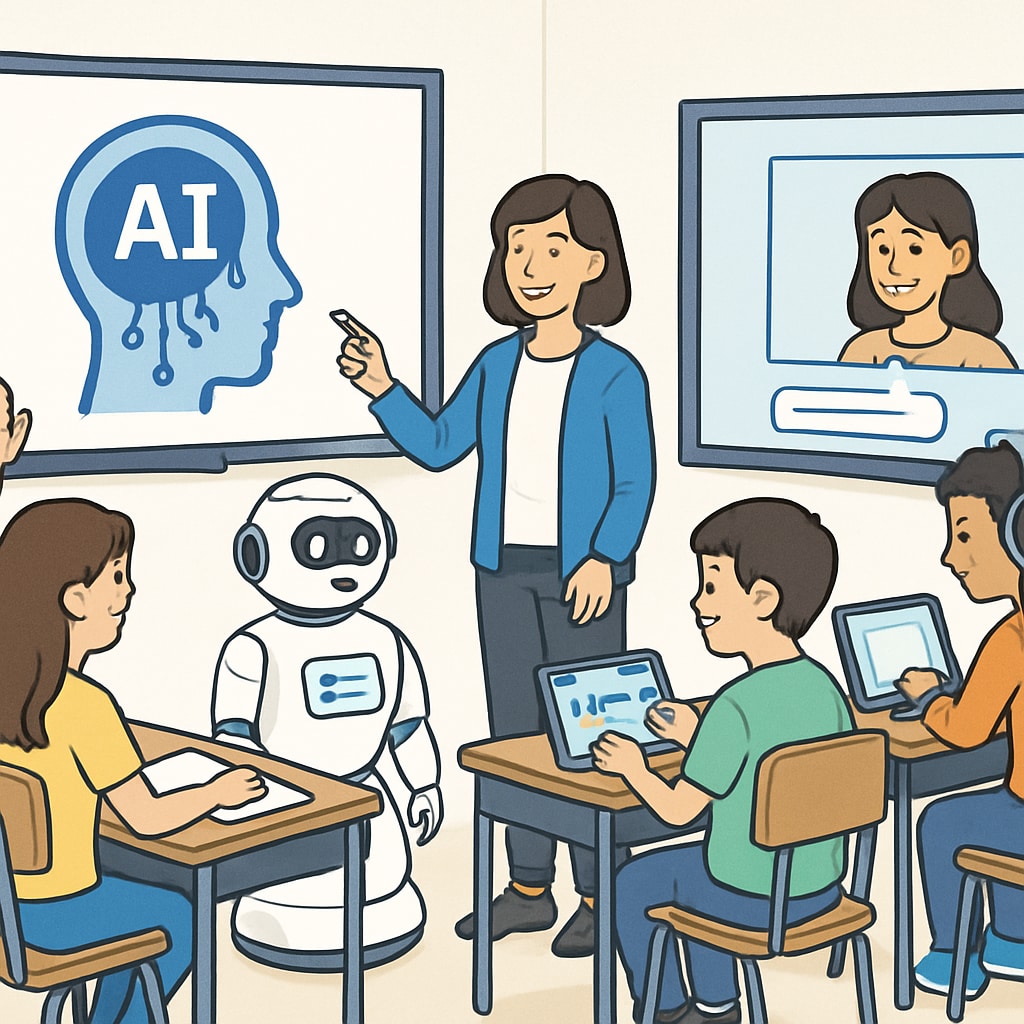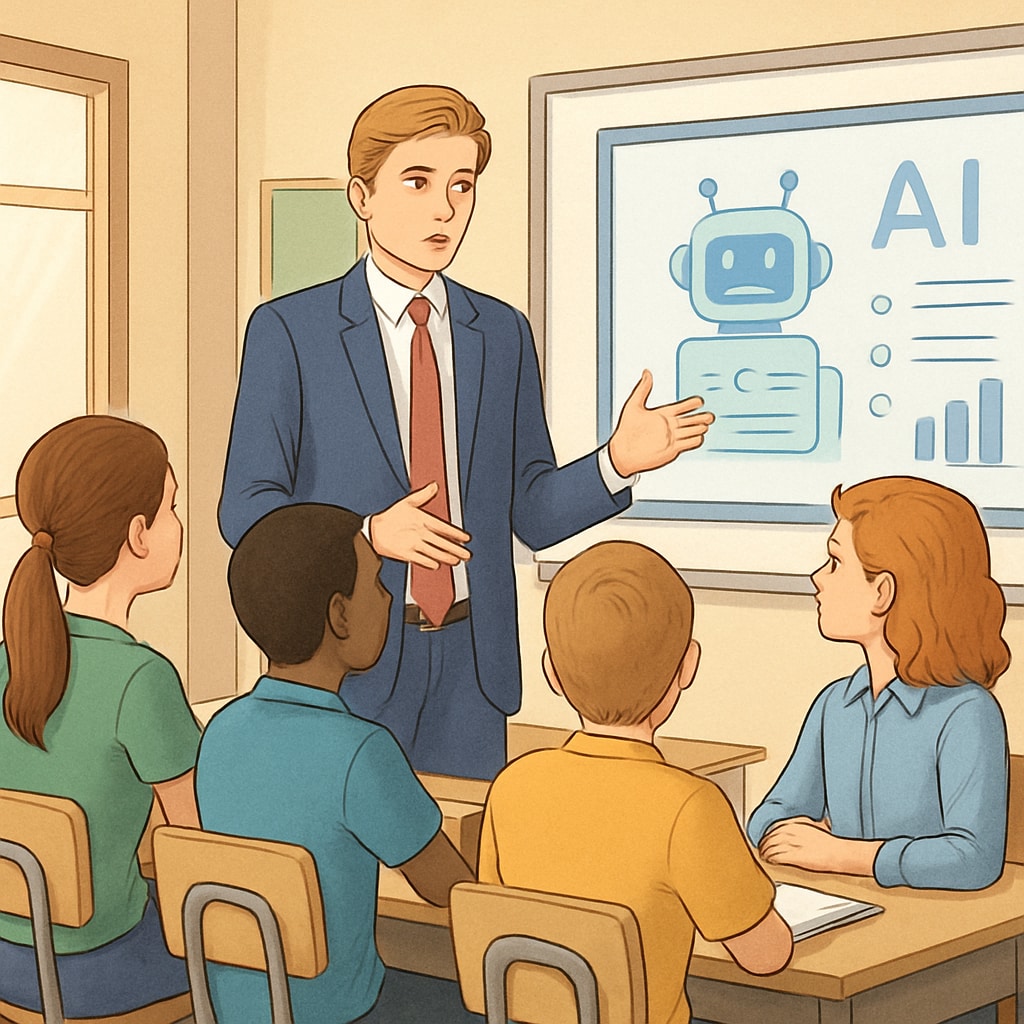The establishment of the White House Artificial Intelligence Task Force, championed by Melania Trump and her son Barron Trump, signals a transformative era for K12 education. This joint initiative underscores the strategic importance of integrating artificial intelligence (AI) into the American education system, reshaping learning methods and influencing global technological advancements. As AI continues to redefine industries, its application in education has the potential to prepare students for a future where AI literacy is indispensable.

Why the White House AI Task Force Matters for K12 Education
Artificial intelligence has rapidly emerged as a cornerstone of technological innovation, and its integration into education is no longer a distant possibility—it is a necessity. The White House AI Task Force aims to bridge the gap between traditional teaching methods and cutting-edge AI tools. Melania Trump, known for her advocacy in youth-related initiatives during her tenure as First Lady, partnered with her son Barron to focus on equipping schools with AI-driven resources.
This initiative prioritizes key areas such as:
- Developing AI-based curricula tailored for K12 learners
- Training educators to utilize AI tools effectively
- Ensuring equitable access to AI resources across diverse school districts
- Promoting ethical AI practices to protect student data and privacy
By addressing these areas, the task force aims to foster a generation of tech-savvy students equipped to navigate an increasingly AI-driven world.
The Role of Barron Trump in AI Advocacy
While Melania Trump’s involvement in education-related causes is well-documented, Barron Trump’s participation in the White House AI Task Force brings a fresh perspective to the initiative. As a student himself, Barron provides insights into the challenges and aspirations of young learners in adapting to AI-infused educational environments. His advocacy emphasizes the importance of creating a seamless integration of AI tools that enhance, rather than disrupt, the learning experience.
For example, Barron has highlighted the potential of AI to personalize education, catering to individual learning speeds and styles. Tools such as adaptive learning platforms and AI tutors can help students overcome barriers that traditional methods often fail to address.

Global Implications of AI-Powered K12 Education
The White House AI Task Force sets a precedent for other nations to follow. As the United States pioneers AI integration into K12 education, countries worldwide are likely to adopt similar strategies to remain competitive in the global education landscape. Innovative technologies such as AI-driven assessment tools, virtual reality learning modules, and intelligent tutoring systems could redefine education on a global scale.
Key global impacts include:
- Standardizing AI education frameworks across countries
- Facilitating international collaboration on AI ethics in education
- Expanding access to AI tools in underprivileged regions
- Encouraging cross-cultural exchange through AI-powered global classrooms
As a result, the ripple effect of the White House initiative could inspire educational policymakers worldwide to prioritize AI literacy as a fundamental component of their curricula.
Challenges and Opportunities Ahead
Despite its promising outlook, the integration of AI into K12 education is not without challenges. Issues such as unequal access to technology, resistance to change from traditional educators, and concerns over data privacy require careful consideration. However, the opportunities far outweigh the obstacles. With proper funding, robust policies, and a commitment to ethical AI practices, the White House AI Task Force can overcome these barriers and establish a sustainable model for AI-driven learning.
Ultimately, the success of this initiative depends on collaboration between government agencies, private tech companies, educators, and students. By fostering partnerships and investing in AI infrastructure, the United States has the potential to lead the world in educational innovation.
In conclusion: The White House AI Task Force, spearheaded by Melania and Barron Trump, represents a bold step forward in transforming K12 education. By leveraging the power of AI, it aims to equip students with the tools and knowledge necessary to thrive in a rapidly evolving technological landscape. This initiative not only promises to revolutionize learning in America but also sets a global benchmark for the future of education.


